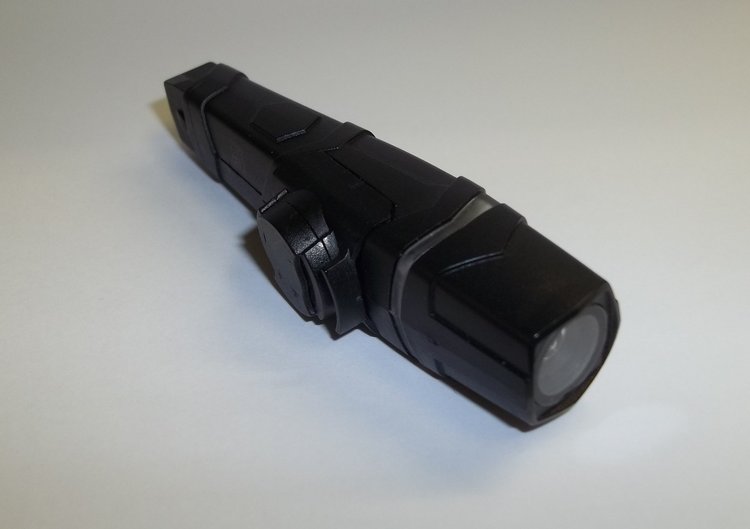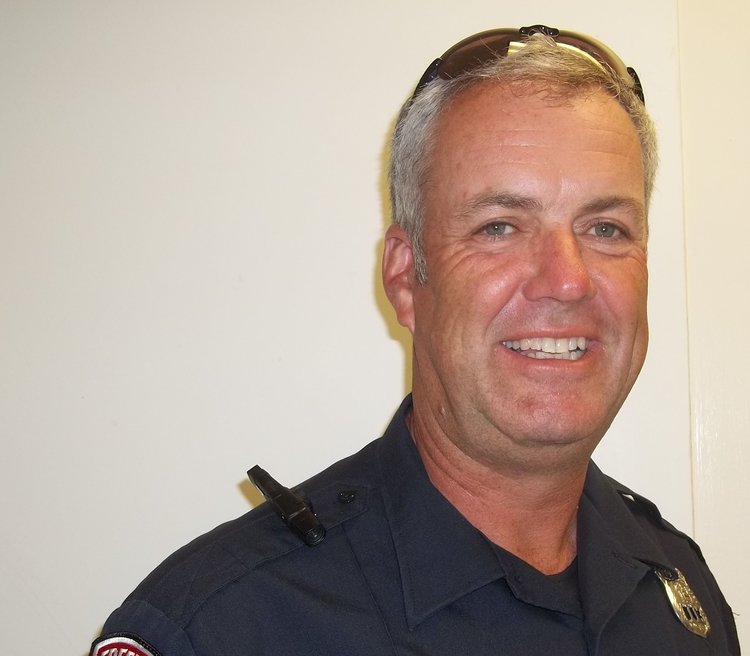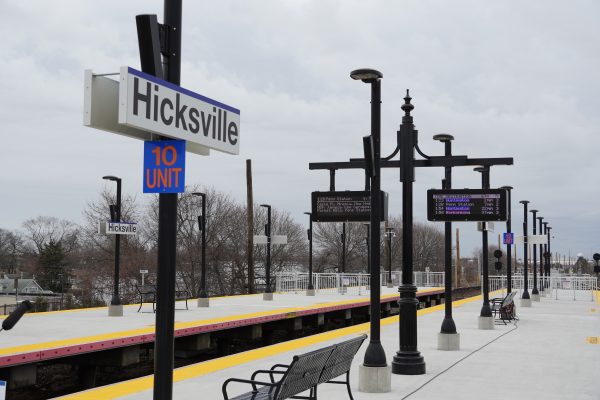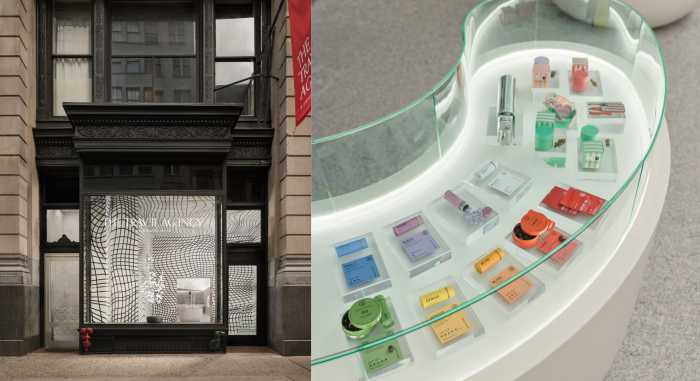
The Freeport Police Department will become the first law enforcement agency on Long Island to require all uniformed patrol officers to wear body cameras.
The program, which the Nassau District Attorney’s office characterized as “groundbreaking,” was made official at a press conference Thursday. Funding for the program—which can be expensive after taking into account the cost of storing recorded data—will be provided entirely by asset forfeiture funds the DA’s office obtained from criminal cases. Officials said purchasing 30 body cameras and eight patrol car dashboard cameras will cost $108,000. The money will also pay for multiple years of data storage and repairs.
“When I first saw the product I saw the value of it right away,” Freeport Police Department Chief Miguel Bermudez said in a phone interview. Bermudez ended up purchasing four cameras to use as part of a pilot program and “it started paying dividends” right away, he said.
The police department, which employs 92 officers—soon to be 95—began experimenting with the cameras last summer.
“This groundbreaking crime-fighting program will have a positive impact for the hardworking police officers who patrol our streets every day, and for the people they are sworn to protect,” acting Nassau County District Attorney Madeline Singas said in a statement.
It is believed that the Freeport Police Department will become the first agency in New York State to require all uniformed officers to wear body cameras, officials said. The NYPD, the largest police department in the country, unveiled a pilot program last December. The Nassau County Police Department announced last year that it would experiment with both body and dashboard cameras, but hasn’t done so yet.
“We are finalizing details for the pilot program,” said Inspector Kenneth Lack, the top Nassau police spokesman.
Bermudez said footage will be used in multiple ways: providing accurate documentation of police and public interaction, evaluating officer performance and immediately recording statements from suspects and victims, which can be used to bolster the prosecutions’ case.
“We’re able to, at the moment it happens, be able to…record a statement from the victim exactly what happens,” Bermudez said. “Because as time goes on some victims change their minds and are reluctant to go to court.”
To bolster that point, Bermudez described a domestic dispute between a mother and son that culminated in the woman being chased and beaten with a hammer. The body camera recorded an officer interviewing the woman, who had bruises on her face. At trial, the woman backtracked, but prosecutors viewed the footage and were able to use it to their advantage in court.
The cameras, which are worn on an officer’s epaulet above their shoulder, are activated once the officer twice presses a button—either kept in their pocket or duty belt. It is deactivated when the officer holds the button for three seconds. The camera runs on a 30-second loop, which means it records a half-minute of activity prior to being activated.

Department policy requires officers to acknowledge the camera is running when interacting with the public.
“Once the situation deescalates the officer will make them aware [of the camera],” Bermudez said. “But when it’s hot and heavy at the time, we’re about officer safety.”
When an officer completes their shift, they’ll attach the device to a docking station, which will charge the camera and download its information. Only five people—three commanding officers and two information technology personnel—can access the footage, which is stored in the cloud for up to 120 days.
Requiring police officers to wear body cameras on their person has been subject to intense debate in recent years, especially after controversial police slayings in Ferguson, Mo. and Staten Island. The officers involved in both cases were not charged—leading to massive protests nationwide.
The DA’s office cited a study by the Rialto Police Department in California in 2012, which found a 50-percent reduction in use of force incidents by officers using the camera, compared to officers who weren’t required to wear the technology. The department’s study also found 10 times more citizen complains in the 12 months prior to the trial.
Civil liberty groups insist there are exceptions.
The Albuquerque Police Department in New Mexico, which has come under fire by the Department of Justice for police-involved shootings, requires officers to wear body cameras, according to the American Civil Liberties Union. But, in some cases, the cameras weren’t turned on. The organization cited two separate occasions in which an officer allegedly shot an individual, but didn’t activate the camera.
“And there are many many cases like this, where the cameras simply weren’t turned on, or the officers said they weren’t turned on, or the footage wasn’t turned in. But of course in criminal cases, when the footage is good for them, they’ll use that footage,” the ACLU said on its website.
Jason Starr, director of the New York Civil Liberties Union’s Nassau County chapter, said the devices could be an effective tool, if used properly.
“We’re hopeful that police body worn camera are the next step in law enforcement,” he said. “They have the potential to further transparency and accountability and ultimately protect both police officers and members of the public.”
“I think they’re important issues to consider, that the use of the cameras and collection and retention of data occurs in a way that is fair and equitable and certainly protects the privacy interest of general members of the public,” he added.
Bermudez, who also served as a police instructor for 25 years, believes the body cameras will benefit both the department and the community.
“It is just a reminder to the officer to always be professional,” he said.

























